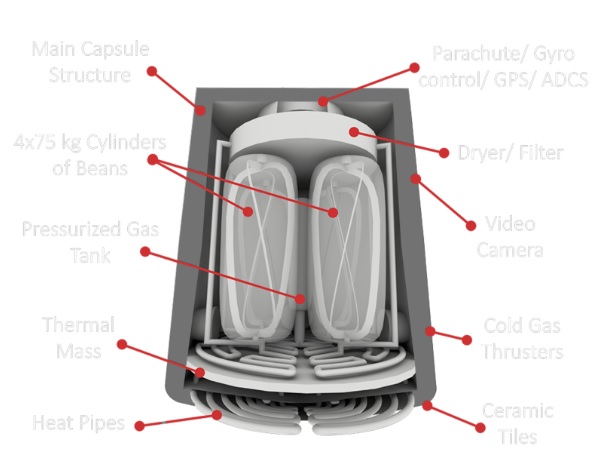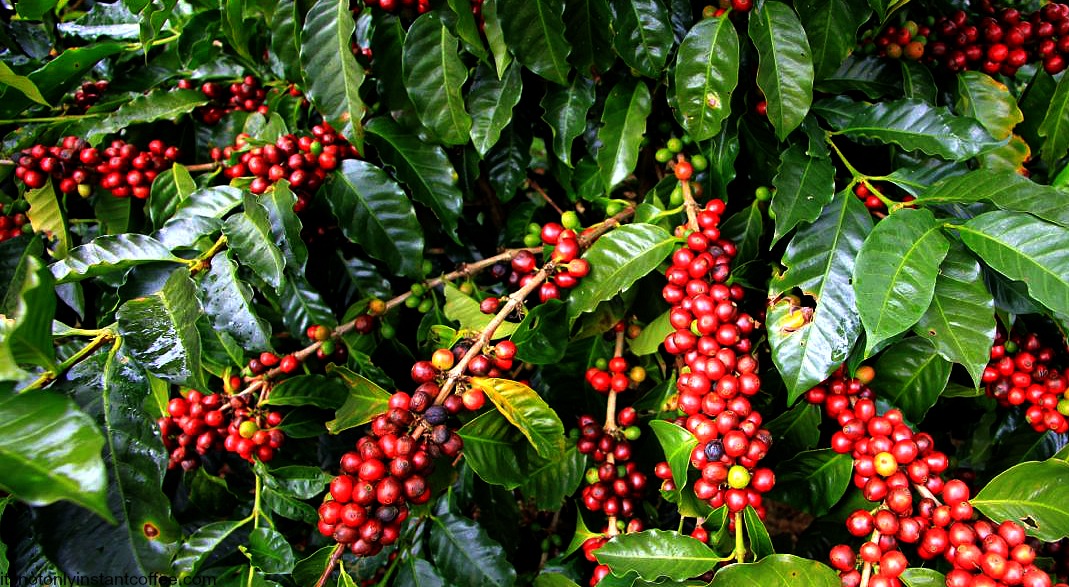Launch a rocket just to bake a few batches of coffee beans? Roasting coffee beans using space technology will make its debut in 2020

Professional coffee knowledge exchange more coffee bean information please follow the coffee workshop (Wechat official account cafe_style)
So far, the person who has drunk the so-called "space coffee" is an ESA female astronaut named Samantha Kristofferty. In 2015, she drank freshly brewed coffee in space using an espresso machine developed by the Italian company Rabazza for the International Space Station. On top of this, the company plans to add a new member to Space Coffee-Space roasted Coffee beans.
Space roasting Coffee beans is a program created by Roasters Space, a company founded in San Diego, California. The plan will launch a rocket loaded with raw coffee beans into space and bake the beans through the heat generated when they fall into the atmosphere. CEO's Hatem Alkhafaji was born in the United Arab Emirates and is scheduled to set up a stronghold in Dubai. This kind of coffee baked in space may become a new gourmet experience in Dubai. CTO Anders Cavallini, who was in charge of the development, once worked for Orbital ATK, a maker of rockets and space stations.
According to information released by Roasters Space at the International Astronautical Congress (IAC) in the fall of 2018, they will put 300kg of hand-picked organic coffee beans into a special capsule-shaped container "Space Roasting Capsule (SRC)" and launch them into space by rocket. After the rocket is launched, the SRC will detach at an altitude of 200km and then use the heat generated when it re-enters the atmosphere to roast the coffee beans inside. The heat generated when entering the atmosphere is very suitable for roasting coffee beans, and the interior of the SRC will always be kept at 200 degrees to heat the coffee beans evenly. After that, the SRC containing the coffee beans will land at sea and be recycled.

Roasters Space plans to conduct a test launch in the third quarter of 2019, with an official launch in 2020. The official website also announced that pre-sale will begin at the end of February, when we will know how much a cup of space coffee will cost.
Considering the huge cost of launching a rocket, will this cup of coffee charge an astonishing price? A senior reporter from spacenews.com, an American space website, questioned how economically and technologically significant the plan is.
The program's rocket carries four SRC, each containing 75kg of raw coffee beans, totaling 300kg. Because the weight of coffee beans is reduced by about 10% after roasting, you will eventually get 270 kilograms of ripe coffee beans. If a cup of hand-brewed coffee uses 10 grams of beans, assuming it is sold at a price of 600 yuan per cup, the total price is probably more than 16 million yuan.
On the other hand, the current launch cost of the rocket (take the American Space Exploration Technology Company's Falcon 9 rocket as an example) is as low as 40,000 yuan per kilogram. Then the cost of 300 kilograms of coffee beans is 12 million yuan. However, because the height at which SRC leaves the rocket is much lower than the usual orbital height when launching artificial satellites, it may be possible to hitch a ride and add SRC with raw coffee beans to the rockets launched by artificial satellites to reduce costs. In addition, compared with the cost of launching, the cost of salvaging SRC at sea needs to be carefully considered.
Although "space baking" can raise the price of coffee beans a lot, it is hard to say whether a cup of coffee can be sold for a few hundred dollars. But then again, the opportunity for Roasters Space will not be officially implemented until 2020, the year Dubai opens the World Exposition. If we can seize the opportunity brought by a large-scale international event such as the World Expo, this kind of coffee roasting which takes advantage of space technology may also find business opportunities.
Important Notice :
前街咖啡 FrontStreet Coffee has moved to new addredd:
FrontStreet Coffee Address: 315,Donghua East Road,GuangZhou
Tel:020 38364473
- Prev

The coffee growers are roaring! Coffee is getting more expensive, but farmers are getting poorer!
Professional coffee knowledge exchange more coffee bean information Please pay attention to coffee workshops (Wechat official account cafe_style) Coffee is becoming more expensive, but coffee farmers are getting poorer, which makes coffee growers around the world roar, warning that Western coffee producers if they do not help them improve their incomes, it may trigger a new wave of social disaster. ■ Growers around the world have wa
- Next

Take a "coffee tour" in Panama for a local drink in Rose Summer. As many as 18 coffee farms participate.
Professional coffee knowledge exchange more coffee bean information please follow the coffee workshop (Wechat official account cafe_style) the Panamanian Tourism Office, the Ministry of the Environment and the Ministry of Agricultural Development recently launched a coffee tour project in the province of Chiriki, Panama. The project aims to develop the tourism value contained in the coffee industry. At present, 18 coffee plantations, a number of travel agencies and hotels have participated. Chiriki
Related
- Can I make coffee a second time in an Italian hand-brewed mocha pot? Why can't coffee be brewed several times like tea leaves?
- Hand-brewed coffee flows with a knife and a tornado. How to brew it? What is the proportion of grinding water and water temperature divided into?
- What is the difference between Indonesian Sumatra Mantinin coffee and gold Mantinin? How to distinguish between real and fake golden Mantelin coffee?
- What does bypass mean in coffee? Why can hand-brewed coffee and water make it better?
- Unexpected! Ruixing Telunsu lattes use a smoothie machine to foam milk?!
- % Arabia's first store in Henan opens into the village?! Netizen: Thought it was P's
- Does an authentic standard mocha coffee recipe use chocolate sauce or powder? Mocha Latte/Dirty Coffee/Salty Mocha Coffee Recipe Share!
- What is the difference between Vietnam egg coffee and Norway egg coffee? Hand-brewed single product coffee filter paper filter cloth filter flat solution!
- What is the difference between sun-cured and honey-treated coffee? What are the differences in the flavor characteristics of sun-honey coffee?
- How to make Italian latte! How much milk does a standard latte use/what should the ratio of coffee to milk be?

